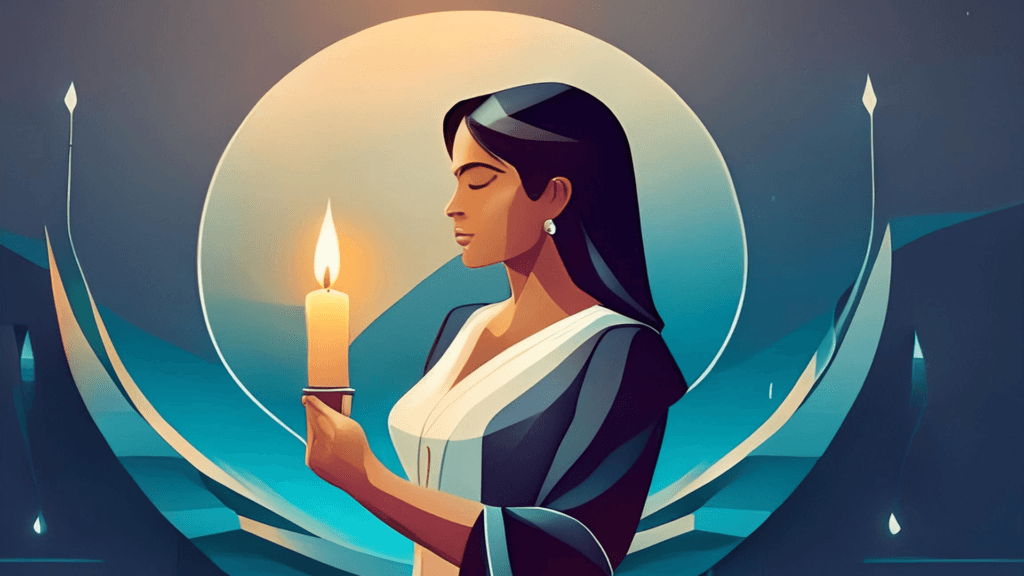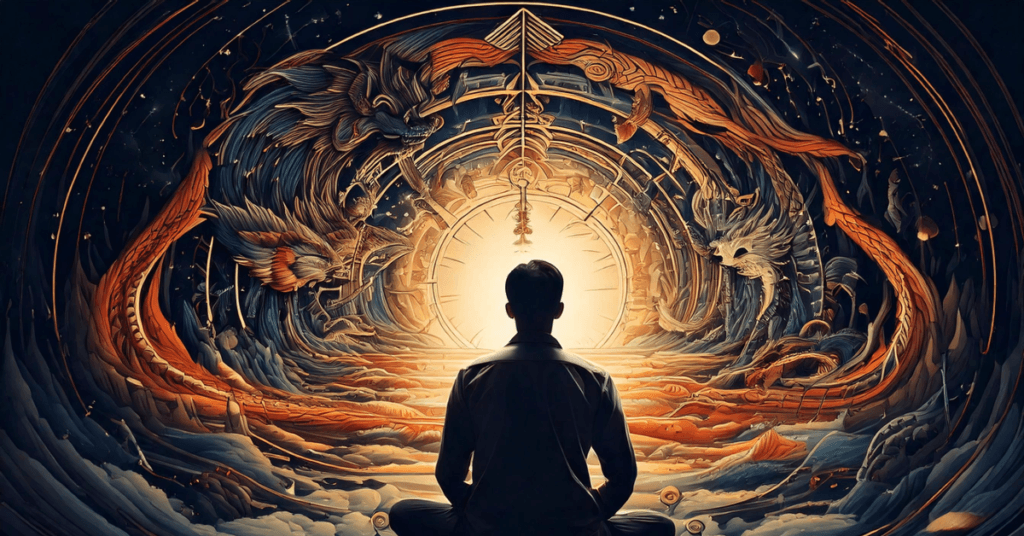In a world that often feels fragmented, disconnected, and overwhelming, rituals offer a steady handrail of hope. While many associate them with religious or spiritual traditions, their power extends far beyond sacred spaces. Rituals can bring structure, purpose, and fulfillment to our individual lives while also fostering healing and bridging cultural divides. By understanding their significance and incorporating them into modern life, we can enrich our existence, connect more deeply with others, and navigate life’s transitions with clarity and purpose.
Read my article about finding greater meaning in life here
Defining Rituals Beyond Routine
Rituals are often mistaken for simple habits, but their significance runs deeper. Unlike daily habits, which are practical and often mindless (e.g., brushing teeth), rituals are imbued with intention and meaning. They transform ordinary acts into experiences that mark transitions, celebrate moments, and affirm values and identity.
- Example: Lighting a candle at the beginning of a meditation session symbolizes inviting peace and reflection, adding an element of reverence to an otherwise ordinary practice.
- Key Distinction: Habits make life efficient and routine; rituals make life meaningful.
Rituals connect us to something greater—whether it’s a personal goal, a shared value, or the vast tapestry of human experience.
Rituals and Personal Fulfillment
Infusing Daily Life with Meaning
Incorporating rituals into daily routines helps us see time not as a relentless forward push but as a series of meaningful moments.
- Example: Starting the day with gratitude journaling transforms a mundane morning into a mindful celebration of life’s blessings.
Reducing Stress and Increasing Mindfulness
Engaging in rituals fosters mindfulness, grounding us in the present moment. Focusing on the steps of a ritual—whether brewing tea or practicing yoga—calms the mind and combats the stress of a fast-paced world.
- Example: A simple tea-making ritual, where you savor the warmth and aroma of the drink, can center you and provide a moment of peace amid chaos.
Creating Anchors of Stability
Life’s unpredictability can be unsettling, but rituals offer stability and comfort. They act as emotional anchors, creating a safe harbor amidst uncertainty.
- Example: A nightly family dinner ritual provides a consistent opportunity for connection, offering reprieve from external stresses.
Marking Transitions: Navigating Change With Rituals
Life is defined by change, and rituals help us navigate these transitions with grace. They mark the boundary between what was and what is to come, helping us step into new roles and identities with intention.
Marking a Before and After
Rituals make intangible changes—like starting a new job or moving to a new city—feel real and manageable. They provide closure for one chapter while opening the door to another.
- Example: Graduation ceremonies signify the end of formal education and the beginning of a new chapter in life.
Stepping Into New Roles
Rituals help us embody new identities, from becoming a parent to entering adulthood.
- Example: Coming-of-age ceremonies like quinceañeras or bar/bat mitzvahs symbolize the transition into responsibility and maturity.
Honoring Endings and Beginnings
In times of loss or change, rituals provide closure and hope. They help us grieve what was while celebrating the possibilities of what’s next.
- Example: Planting a tree to honor a departed loved one can become a ritual of remembrance and renewal.
Building Community and Strengthening Bonds
Rituals are not just solitary practices; their true power often shines in shared settings where they strengthen relationships and reinforce a sense of belonging.
Reinforcing Social Connections
Engaging in group rituals creates shared experiences that deepen bonds and foster inclusion.
- Example: Weekly Sunday dinners or holiday celebrations offer consistent opportunities for storytelling, laughter, and connection.
Promoting Inclusivity
The universality of rituals means they can transcend religious or cultural boundaries, bringing people together around shared values.
- Example: Gratitude circles or community service events emphasize kindness and support, appealing to people of all backgrounds.
Building Collective Resilience
During challenging times, communal rituals foster solidarity and hope.
- Example: Candlelight vigils provide a space for mourning and unity, demonstrating the power of collective strength.
Rituals as Tools for Bridging Cultural Divides
In today’s diverse and sometimes divided world, rituals can foster understanding and connection between cultures.
Embracing Shared Human Experiences
Many rituals revolve around universal themes like birth, death, seasons, and milestones. These shared elements create opportunities for dialogue and appreciation.
- Example: Harvest festivals, while varying in specifics, are celebrated worldwide to honor abundance and community.
Encouraging Cross-Cultural Participation
Events like Dia de los Muertos or Diwali have gained popularity beyond their original cultures, inviting people to celebrate life and hope together.
Creating Hybrid Rituals
Communities increasingly blend elements from different traditions, creating new, inclusive rituals that respect heritage while reflecting modern diversity.
- Example: Multi-faith wedding ceremonies incorporate symbols and practices from various cultures, honoring the backgrounds of both partners.
Rituals as a Source of Healing and Identity
One of the greatest gifts rituals offer is their ability to heal and impart meaning, especially in turbulent times.
Reflecting Values and Intentions
Personal rituals like creating vision boards or reciting affirmations align daily actions with long-term goals, reinforcing purpose.
Healing Loss and Trauma
Rituals help us process grief and loss, offering a structured way to honor the past while moving forward.
- Example: Writing a letter to a departed loved one and reading it aloud can provide a sense of closure and connection.
Imparting Identity and Teaching Values
Family rituals teach children about their heritage, values, and roles within the community.
- Example: Weekend traditions, like hiking or storytelling, help pass down cultural practices while fostering unforgettable memories.
Rituals: A Path to Meaning and Unity
Rituals are powerful threads that weave meaning and connection into the fabric of our lives. They impart a sense of identity, provide comfort, and help us navigate life’s changes. Whether celebrating milestones, fostering relationships, or bridging cultural divides, rituals remind us of our shared humanity and the beauty of purposefully living.
In embracing rituals—traditional or modern, personal or communal—we open ourselves to a life rich in meaning, connection, and fulfillment.
✨ What rituals bring meaning to your life? Share your thoughts below!



